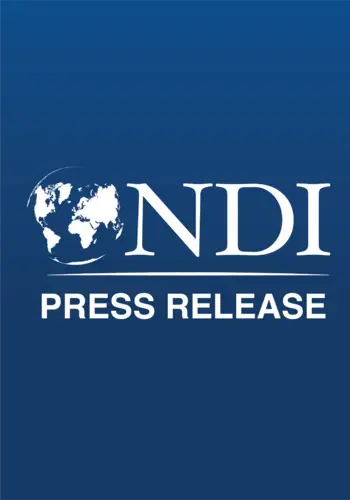TBILISI – Minister of Defense Irakli Alasania and the President of Georgia Giorgi Margvelashvili are the most popular government leaders in Georgia with a 72 percent approval rating each, while 61 percent rate the Georgian Dream Coalition as the “party” closest to them, according to the findings of a public opinion survey released here today by the National Democratic Institute (NDI).
Prime Minister Irakli Gharibashvili is the next most popular coalition leader with an approval rating of 71 percent; followed by the Speaker of the Parliament David Usuapashvili receiving an approval rating of 65 percent.
Eighty-two percent of those surveyed think it is important for Georgia to have a strong opposition; United National Movement (UNM) was identified as the strongest opposition party by 52 percent of those surveyed, which is an increase by 10 points compared to NDI’s September 2013 poll. Respondents also cited Democratic Movement-United Georgia as another strong opposition party at 8 percent.
Among opposition leaders, Parliamentary Minority Leader Davit Bakradze is the most popular, with a favorable rating of 48 percent, followed by Shalva Natelashvili at 34 percent and Giorgi Targamadze at 32 percent.
Luis Navarro, NDI’s country director in Georgia, said, “Following the Presidential election, the Georgian Dream Coalition remains the dominant political force both as a coalition and in terms of its leaders; while UNM and David Bakradze are seen as the leading opposition forces.”
These findings were part of a broader survey (PUBLIC ATTITUDES IN GEORGIA: RESULTS OF A NOVEMBER 2013 SURVEY) that found that voters care most about jobs, territorial integrity and health care. The survey looked at issues of public importance, perceptions of democracy and attitudes toward reforms, as well as various domestic and foreign policy issues.
The survey looks at issues of public importance, perceptions of democracy and attitudes toward reforms, as well as various domestic and foreign policy issues. The results reflect data collected from November 13 through November 27 in face-to-face interviews with a nationwide representative sample of Georgian speakers that included 3,915 completed interviews. The survey has an average margin of error of +/-2%.
NDI’s survey work is funded by the Swedish International Development Cooperation Agency (Sida) and carried out by the Caucasus Research Resource Centers (CRRC).

